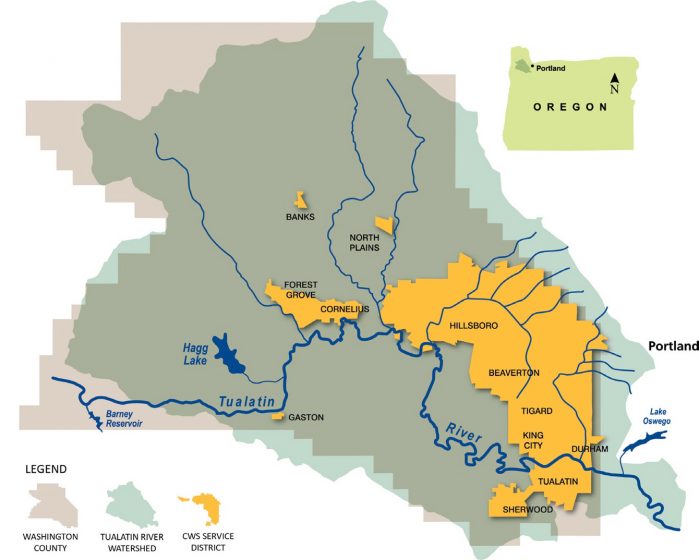
TFA owes its success to more than 30 partners who have recognized the importance of creating a healthy and resilient watershed for humans and wildlife. Key to this success is the notion that solving wicked problems like climate change and rapid urbanization is dependent on our ability to create diverse transformational partnerships. These transformational partnerships bring with them the human and financial resources needed for solving some of our most challenging and complex problems. Reflecting on these 15 past years, I have witnessed many great stories where partners have come together to create transformational projects that feed this landscape conservation program. For me, new programs often start with a walk in the woods with my friend Kirby.
Quiet reflection and connecting with nature
It is an hour before sunrise on a cool fall morning in the suburbs of Portland, Oregon. My alarm clock is going off with the usual thump, thump, scratch, scratch outside my bedroom door. Yep, Kirby the rescue dog is letting me know it’s time for our daily “Paseo Verde” (“Green Walk”). The hour before dawn is a very special time for both of us as we stretch our legs and clear our minds. A few humans are stirring but it’s the local wildlife and natural world that inspires us.

Our walk begins in a typical suburban neighborhood, with cul-de-sacs, quiet sleepy streets and dark houses. Soon, however, I take a footpath that travels a mile along an urban stream planted with native vegetation. It’s dark, but we find our way with the help of my trusty headlamp and it’s not long before Kirby is saying hello to four sets of glowing eyes as we watch a mother raccoon herd her children home along this wildlife corridor. They look well fed as Kirby sniffs remnants of last night’s dinner, looks like crayfish was on the menu. It’s not long before we reach a local high school ball field where hundreds of Canadian geese spent the night. It is a safe stopover on their way south and they will be gone before sun up, leaving behind nourishment for the grass.
We are now three miles into our Paseo Verde when we enter the last segment of our journey, a 30 acre natural area with abundant foot paths and another opportunity to say good morning to Mother Nature. This time it’s 80 foot Douglas Firs and Red Cedars, with large Sword Ferns covering the forest floor. Owls and coyotes have left their calling cards beneath trees and along the trail. This stand of trees was here long before the surrounding houses. I wonder how many generations of wildlife have spent time in this forest. I have visited this park many times in the hour before dawn when it’s just me and nature. I wonder how many people are connecting with nature in this park.
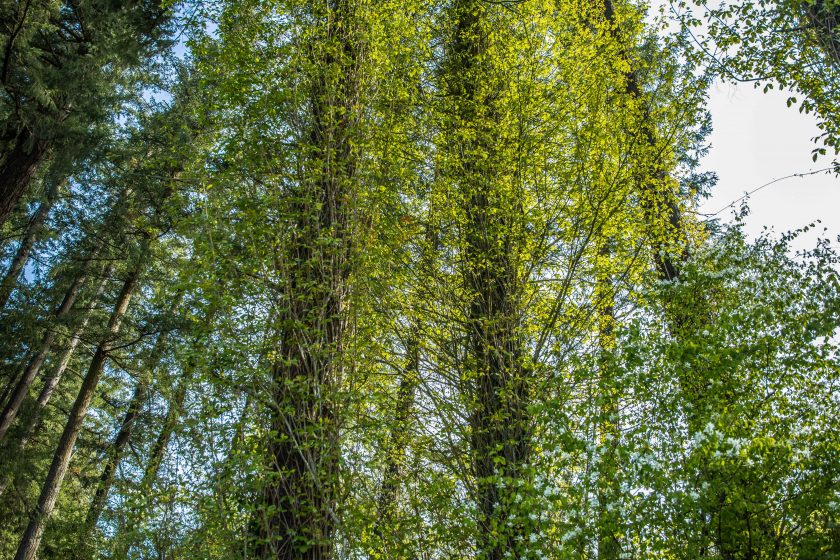
Upon leaving the park, my walk is soon over and the sun is rising as I prepare for work. I saw some interesting wildlife, and, like me and Kirby, they appear to be well fed and happy. Clean air, water, and native vegetation seems to make us both happy. My mental health and moments of quiet reflection are tied directly to this daily Paseo Verde. It’s not the idea of lowering blood pressure and weight that stimulates my interest in these daily walks, but rather the experience I have of walking with a good friend and witnessing Mother Nature just before dawn.
I am fortunate to live in an area where Mother Nature is a few steps away from my home. Having worked throughout Washington County, Oregon, I also know that not everyone has this same opportunity. When I think about underserved communities, I often ponder how my job with a public utility might provide opportunities and access to nature. Creating such connections is not that difficult when we are able to step back and rethink how we connect our clean water regulatory requirements to a broader set of community values. Values like human health and wellness, access to nature, clean water, and sense of place. By pairing utility needs with the needs of local non-profits and governments, a broader set of values can be addressed and a richer outcome is achieved.
The creation of Paseos Verdes
A dozen plus years ago I was fortunate to join forces with the Audubon Society of Portland and Bienestar, a local community development corporation that provides affordable housing for Latino farmworkers and lower income families, on a program called Explorador Camp. The Explorador Camp program provides summer nature-camp activities and field trips to school-age residents of Bienestar housing. At the same time, the Tree for All program was busy restoring thousands of acres of public lands in the Tualatin River Watershed. We had a target audience and many great places to visit and learn about watershed health and stewardship. As the program flourished, we began to ponder how to expand upon the program and this partnership with the local Latino community.
In 2017, amid the burgeoning research linking nature with improved health outcomes, we were inspired to create a program that harnessed our existing partnerships to enhance human health outcomes alongside all of our efforts to enhance the health of the Tualatin watershed.
This seed of an idea was planted into the existing partnership with Bienestar and the Audubon Society of Portland, and the result was Paseos Verdes (Green Walks). The program, now in its fourth year, connects underserved community members to natural areas in Washington County through guided walks in the Tualatin Watershed. The walks engage families to learn about watershed health, water management, and wildlife. These experiences promote environmental stewardship while providing the health benefits of being active in nature and the outdoors.
The Paseos Verdes program began with a dialogue about what the community wanted and how we could work together to achieve it. We learned about the barriers that many community members face to accessing our local natural areas, and followed their lead in designing a culturally relevant program. Community members told us that they wanted a multi-generational, family-friendly program that accommodates the full spectrum of bilingualism. We also learned that transportation is a significant barrier to accessing local natural areas for many community members. Working with Bienestar, we developed Paseos Verdes and piloted the program in the summer of 2017.
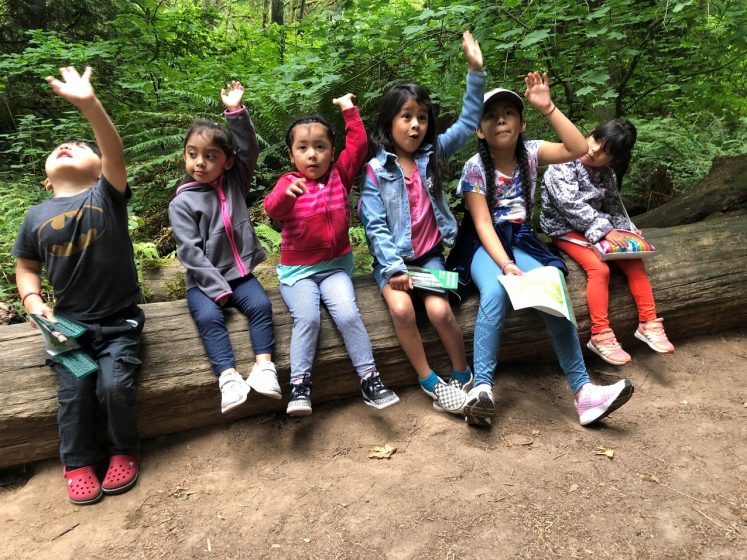
The first year of Paseos Verdes, we started with three partners and one walk location. The program was a great success, and the response from the Bienestar community was overwhelmingly positive. Program participation exceeded our expectations and families were eager to sign up again and again. Walks were held at the Fernhill Wetlands, a cutting-edge natural treatment system and natural area. Along the trail, participants could often be heard exclaiming “I live nearby and I have never been here before!” while planning their next visit together. On one walk, children lined up excitedly to observe great blue herons and bullfrogs through a bird-spotting scope while marveling over the fact that their bathwater could end up in such a beautiful place. On another occasion, a delighted grandmother spotted wild chamomile growing alongside the trail and taught the group about the plant’s various uses in her native Mexico. This two-way teaching and learning model, in which both participants and naturalists learn from each other, is an important part of the program. Participants often teach the naturalists and the rest of the group about cultural uses for plants or alternate names for migratory birds they encounter on the walks.
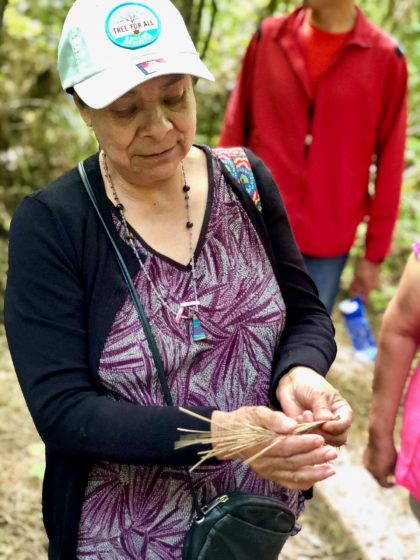
In 2018, we brought on another partner, the Tualatin Soil and Water Conservation District, and joined forces with Hillsboro Parks and Recreation District to hold walks at the Jackson Bottom Wetlands Preserve. We also developed a Bilingual Naturalist Training Program. A cohort of five Washington County residents was recruited to participate in trainings and lead the walks. Participants learned about plants, animals, and habitats through classroom learning and field practice, while developing organizational and leadership skills.
In 2019, Paseos Verdes has continued to flourish, partnering with the Virginia Garcia Memorial Health Center, a local nonprofit healthcare organization that specializes in care for migrant and seasonal farmworkers, to provide walks to their patients. The program has also partnered with the Tualatin Hills Parks and Recreation Department to offer walks at the Tualatin Hills Nature Park, an additional site for participants to explore.
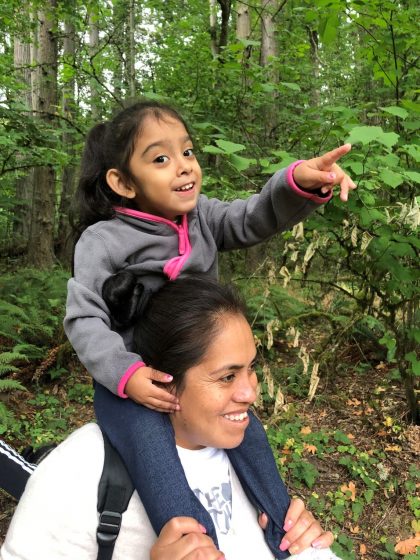
Paseos Verdes post-walk evaluations consistently tell us the same story: participants feel happier, less stressed, and more relaxed that they did before the walk. The children become fast friends as they walk the trails and marvel over a barred owl eating prey and families make plans to come back together the following weekend. By providing culturally competent and engaging opportunities for Washington County residents to connect with the Tualatin Watershed, Paseos Verdes is improving community health while fostering the river stewards of tomorrow.
Like so many TFA partnerships, Paseos Verdes started with a conversation between local governments and non-profits wanting to engage in a new partnership. In this case, it was the local Latino community and a walking adventure that brought together health care providers, parks districts, local cities, non-profits and a utility that was able to work within a broader set of community values. As we watch local health organizations join the program, we see new wellness investors joining forces with local restoration efforts. For me, helping create Paseos Verdes was one of the richest and most rewarding experiences of my career. I learned so many new things watching and listening to our new partners. Partners who add a sense of place and a cultural heritage that strengthens our community.
Bruce Roll
Portland

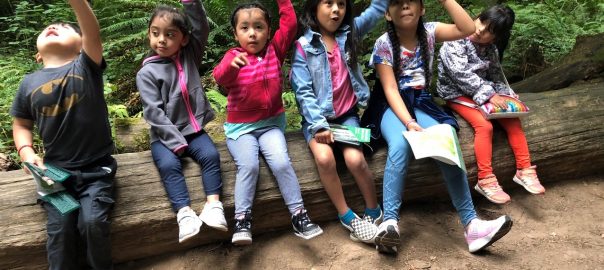

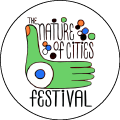
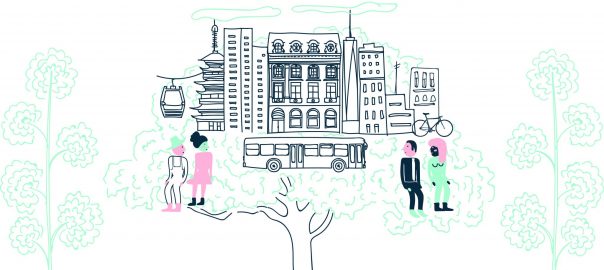
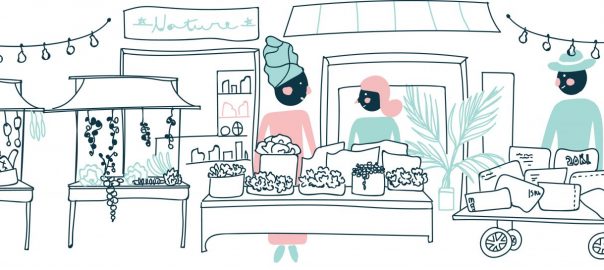

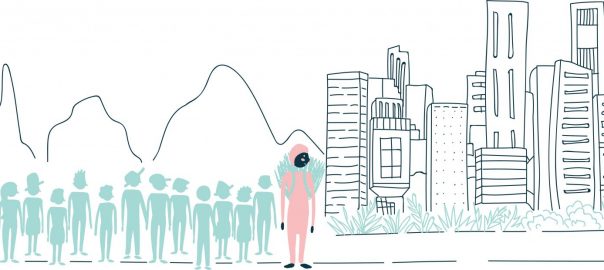
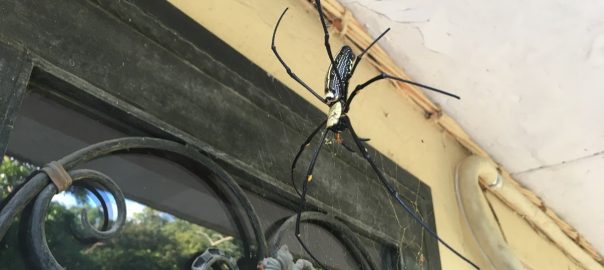
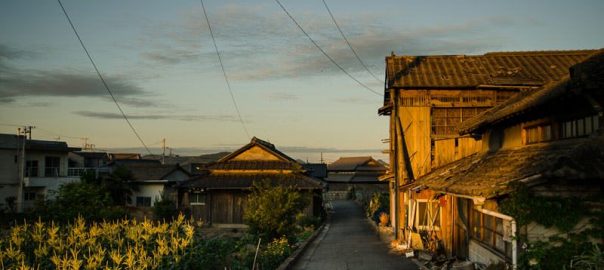

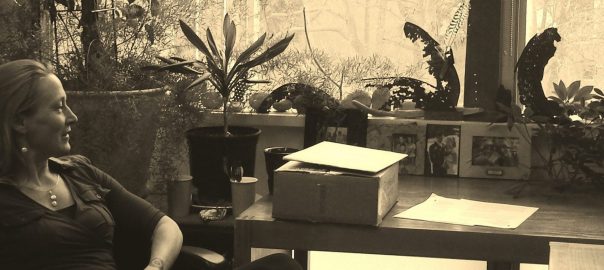
Add a Comment
Join our conversation